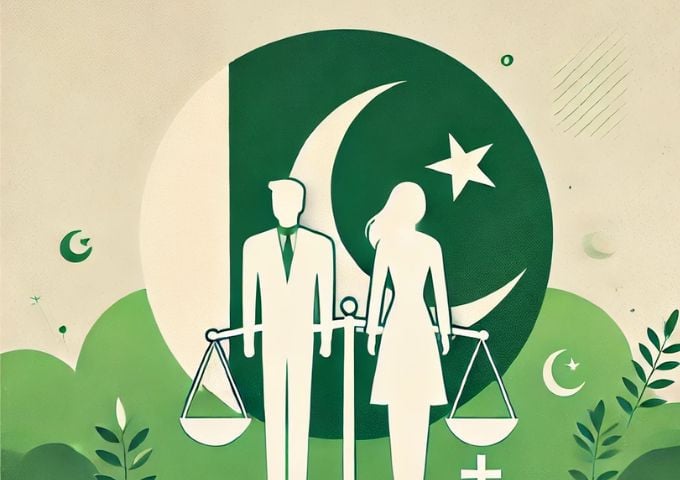
As we mark the 30th anniversary of the Beijing Declaration and Platform for Action, it’s an appropriate moment for Pakistan to not only reflect on the progress made in advancing gender equality and women’s empowerment, but also confront the institutional barriers that remain firmly in place.
The Beijing Platform, adopted in 1995, offered a blueprint for transforming global gender norms, with particular focus on areas like education, economic participation, health, violence against women, and political representation.
For Pakistan, the journey has been mixed, and while there are achievements worth acknowledging, the path forward demands deeper institutional commitment to address the systemic challenges that still restrict the true realization of gender equality.
In Pakistan, gender equality has been a key feature of public policy for decades, but entrenched patriarchal systems and deeply rooted cultural norms continue to hinder the effective implementation of progressive laws and policies.
To fully honor the Beijing Declaration, Pakistan must not only be a signatory to international commitments but also translate those commitments into action, particularly through strengthening institutions that play a pivotal role in advancing gender equality.
National Institutions: Progress and Pitfalls
Over the years, Pakistan’s government has made efforts to integrate gender equality into its national policy framework. Notable steps include the National Policy for Women’s Empowerment (2002), the establishment of the National Commission on the Status of Women (NCSW), and initiatives like the Benazir Income Support Programme (BISP), which has empowered economically marginalized women by providing direct financial assistance.
Yet, these efforts are often inconsistent, and their reach is limited. Rural Pakistan, in particular, remains a stark example of how gender-based inequalities are compounded by a combination of cultural conservatism and limited institutional infrastructure.
Despite the existence of policies, the deep-seated nature of gender discrimination means that in many areas of the country, land inheritance and access to education remain heavily gendered.
Women’s representation in politics, although growing, is still constrained by structural barriers that prevent them from achieving real political influence.
The case of Benazir Bhutto, the first female Prime Minister of Pakistan, is both a success and a cautionary tale. Bhutto’s leadership was a milestone in the country’s history and a testament to the potential of women’s political leadership.
However, her tenure also exposed the limits of institutional support and the persistence of patriarchal structures.
While Benazir Bhutto’s political ascent was an anomaly in the context of Pakistan’s male-dominated political culture, her inability to overcome these entrenched systems in her lifetime highlights just how far Pakistan has yet to go in creating a truly inclusive and gender-sensitive political environment.
International Commitments: Progress on Paper, Not Always in Practice
On the international stage, Pakistan has often aligned itself with global frameworks such as the United Nations and the Sustainable Development Goals (SDGs), which include specific commitments to gender equality.
The Beijing+30 review emphasizes the need for global collaboration to advance gender equality, and institutions like UN Women have been crucial in providing technical support and advocacy for women’s rights in Pakistan. However, the disconnect between global commitments and national realities persists.
International frameworks cannot simply be imposed from the top down; they must be coupled with localized efforts that are responsive to the complex socio-political and cultural landscape of Pakistan.
While Pakistan is a signatory to these agreements, there remains a significant gap in translating the language of global conventions into practical, on-the-ground policies that address the everyday challenges women face, particularly in rural or underserved regions.
The Role of Civil Society and the Private Sector
In Pakistan, civil society organizations and the private sector have played an increasingly important role in addressing gender equality. Women’s rights activists, NGOs, and community-based organizations are engaged in a multi-pronged effort to break down social norms and challenge the status quo.
Groups like Aurat Foundation and Bedari continue to advocate for legal reforms and provide crucial support for women, while microfinance programs such as those spearheaded by Kashf Foundation offer financial independence to rural women.
However, these grassroots efforts often face resistance, both from patriarchal structures and state institutions that are either indifferent or actively hostile to gender equality initiatives.
Pakistan’s private sector, though growing in its support for gender equality through CSR initiatives, still faces significant challenges, including gender pay gaps, discriminatory workplace practices, and a lack of opportunity for women in senior leadership roles.
Companies like Unilever Pakistan and Engro Corporation have made important strides, but the overall progress remains slow.
The private sector’s involvement in financial inclusion—including initiatives like mobile banking and microcredit—has been one of the more successful areas of gender empowerment in Pakistan.
Women are increasingly gaining access to resources and credit, allowing them to start small businesses and gain economic independence. But again, these efforts are often piecemeal and require stronger institutional support to truly reach those most in need.
Case Studies from Developing Countries: Lessons for Pakistan
Pakistan’s gender equality journey can benefit from the experiences of other developing countries that have seen measurable progress in women’s empowerment.
For instance, Rwanda stands out for its strong political will to ensure gender parity in governance. With a parliament that has the highest percentage of female representatives globally—61%—Rwanda’s success story demonstrates that political representation is key to transforming broader societal attitudes toward women.
The establishment of the Gender Monitoring Office ensures that gender-sensitive policies are integrated across various sectors, from health to education to economic development. This is a clear example of how institutional commitment and policy reform can create lasting change.
India has made significant strides through grassroots movements like Self-Help Groups (SHGs), which provide rural women with financial resources, training, and leadership opportunities.
These groups have proven particularly effective in promoting economic empowerment while also creating platforms for women to engage in political and social decision-making.
In Brazil, the Maria da Penha Law has been a game-changer in the battle against domestic violence. Backed by government support and civil society involvement, this law has made it easier for women to report violence, access legal remedies, and receive protection.
The National Women’s Institute in Mexico has similarly worked to integrate gender-responsive policies into the national agenda, with tangible results in health, education, and economic participation for women.
These countries show that when there is a concerted effort at both the national and grassroots level—backed by legal reforms, public policy, and political will—substantial progress can be made.
Pakistan, despite its unique challenges, can draw inspiration from these successes and adapt their best practices to its own context.
The Way Forward: A Call to Action
As Pakistan reflects on the Beijing+30 milestone, it must commit to translating the ideals of gender equality into tangible, everyday actions. For real progress to occur, national institutions must be strengthened, laws must be enforced with consistency, and gender-sensitive policies must be integrated into every aspect of public life—from education and healthcare to economic participation and political representation.
The private sector, civil society, and international partners have a crucial role to play in supporting this transformation, but it is ultimately political will and institutional reform that will ensure gender equality becomes more than a lofty aspiration.
The Beijing+30 review is not just an occasion to take stock of past achievements but an urgent call to address the persistent challenges that continue to undermine women’s rights in Pakistan. The path ahead demands collective action, sustained commitment, and a willingness to challenge the structures of power that perpetuate gender-based discrimination. Pakistan must not only sign the agreements but implement them—it’s time to turn words into action.




1723030748-0/Chloe-Bailey-(1)1723030748-0-165x106.webp)





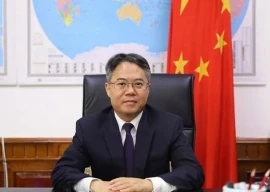
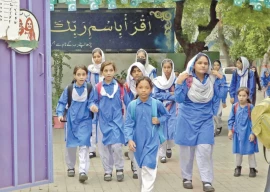

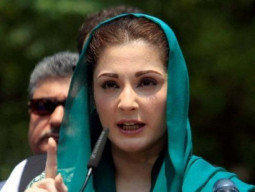








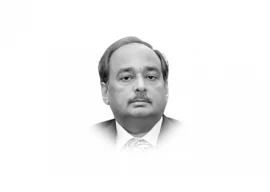
COMMENTS
Comments are moderated and generally will be posted if they are on-topic and not abusive.
For more information, please see our Comments FAQ